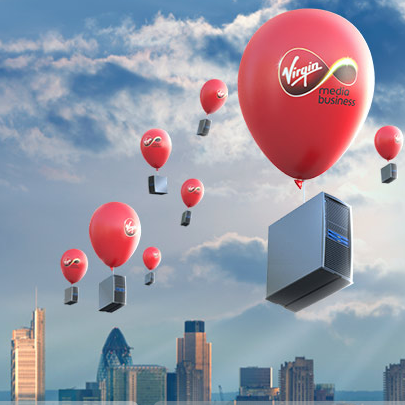Virgin Media To Increase Broadband Speeds – And Prices

Virgin Media is to raise broadband and television prices by an average of 6.7 percent, as it prepares to launch a 152Mbps fibre-optic offering
Virgin Media said on Monday it is planning a broadband speed boost for customers on its fibre-optic networks – but prices are also set to rise by an average of 6.7 percent.
Virgin Media currently offers 30, 60 and 120Mbps broadband download speeds, and with the upgrade the company will introduce a 152Mbps offering. At the same time, existing users will see their speeds automatically increase by at least 20Mbps depending on their current service, according to Virgin Media.
Speed boost
Customers whose speed increase means that they need a “Super Hub” router are to be supplied one for the cost of shipping. Virgin Media says 12.5 million customers currently have access to its fibre-based services.
 Virgin Media chief executive Tom Mockridge said the speed boost is intended to keep pace with customers’ rising data usage.
Virgin Media chief executive Tom Mockridge said the speed boost is intended to keep pace with customers’ rising data usage.
“We are boosting speeds again and ensuring our customers can get even more value from their Virgin Media subscription,” he said in a statement provided to TechWeekEurope.
The company said Internet traffic among its customers at peak times has grown by 55 percent in the past year and by 1000 percent since Virgin Media launched in 2007. Monthly downloads have increased by a third in the past year alone.
The speed increases are set to take place in February, around the same time that Virgin Media said it plans to introduce price rises affecting telephone, television and broadband customers, but not mobile pricing plans. The company said customers will see their bills go up by an average of 6.7 percent starting in February.
Virgin Media said it reviews its pricing on a regular basis and is introducing the rise in order to continue delivering a high quality of service.
Advertising claims
Virgin Media noted that its new 152Mbps headline speed is more than double the top speed of 76Mbps offered by BT’s Infinity service over the company’s Openreach fibre network. However, BT pointed out that its network is accessible by 17 million homes, compared to 12.5 million on Virgin Media’s fibre network, and also argued that the headline speed could be misleading since Virgin Media throttles download speeds for some customers at peak times.
Last month the Advertising Standards Authority (ASA) told Virgin Media to stop using the terms “unlimited” and “no caps” in advertising of broadband services, since those services are subject to a “traffic management policy” that could reduce customers’ speeds for a short time. Virgin Media had argued that the effects of the policy were similar to network slowdowns ordinarily experienced by customers at peak times, and therefore were “moderate”, justifying its claims of “unlimited” and “no caps” broadband, but the ASA ruled that the company’s claims were not justified.
Virgin Media recently introduced SmartCall, a Wi-Fi calling application that allows smartphone users to use their smartphone minutes on their Virgin Media home phone, and is about to add Netflix to its range of television services.
Earlier this month the company marked its first full quarter under the ownership of Liberty Global by adding 250,000 to its total number of superfast broadband subscribers in the past three months. It added 30,000 new broadband subscribers during the third quarter, and of that number, 45 percent opted to receive speeds of 60Mbps or faster. This means that 3 million, or 69 percent, of the firm’s 4.3 million broadband customers now receive superfast broadband services of 30Mbps or faster.
Do you know all about the history of BT? Take our quiz.